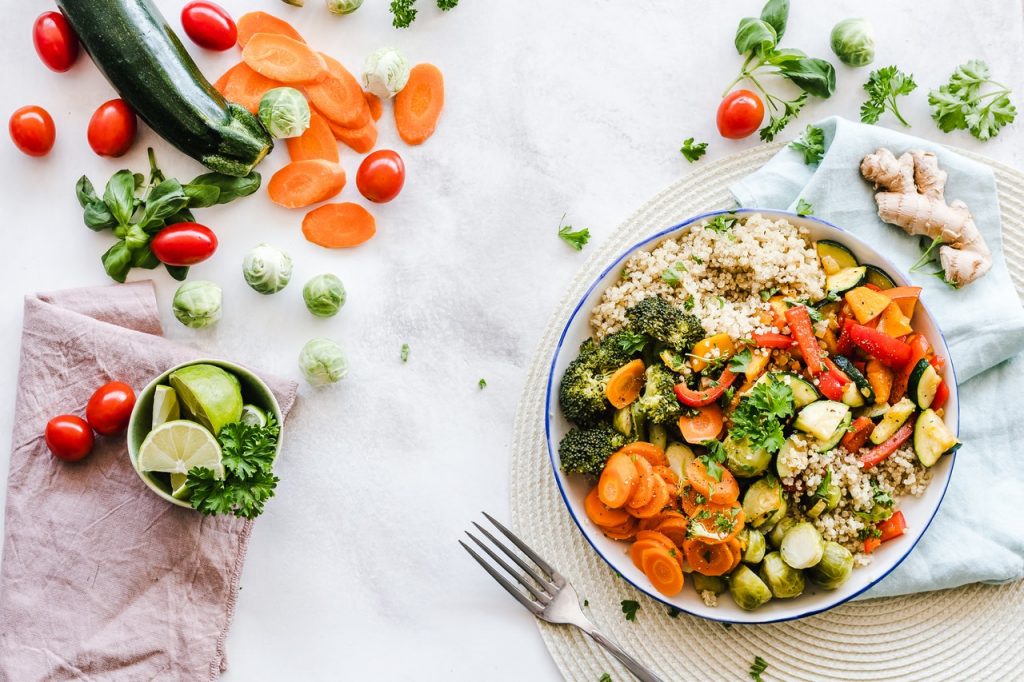Research shows that vegetarians and vegans tend to weigh less than their meat-eating counterparts. This could be due to the typical vegetarian diet, which is generally higher in fiber than diets containing meat, but lower in calories, protein, fat, saturated fat, and cholesterol.

That said, even the healthiest foods can be overdone, and whenever calorie intake is higher than calories burned, weight gain can occur. Vegetarians (and meat-eaters alike) can benefit from the following strategies:
- Limit excess fat, sugar, and foods with few nutrients — Avoid fried foods, sodas, and other sugary drinks. It is also important to limit refined grains, sweets, and high fat dairy like ice cream and cheese. Instead, get your fats from reasonable portions of oils, nuts, and avocados, and your carbohydrates from fruit, vegetables, beans, and whole grains.
- Seek balance and variety — When foods are already restricted from a diet (i.e. meat) it becomes even more important to consume a wide variety of foods from each remaining food group.
- Adequacy is important — A weight loss plan can increase the risk of inadequate nutrition. Visit www.ChooseMyPlate.gov to learn how much you need of each food group, and how to create a balanced plate at meals.
- Be wary of convenience foods — The selection of frozen, boxed, and canned vegetarian meals is improving, but they can be high in calories and substantial sources of sodium.
- Stay active —Physical activity is an important component of any weight loss program. It not only burns calories, but may allow for more leeway with dietary choices — which can help with nutritional adequacy, and not feeling deprived.

